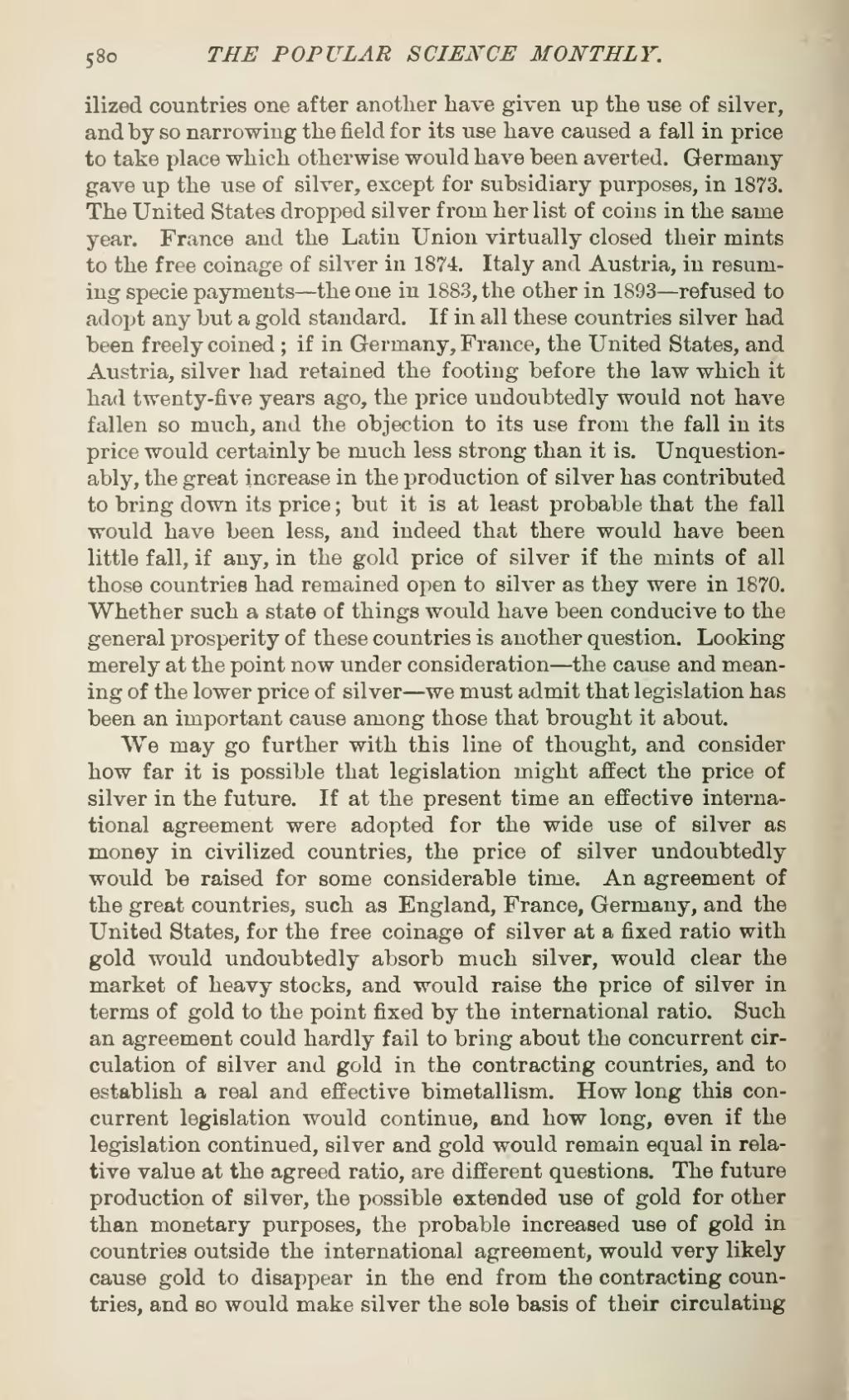ilized countries one after another have given up the use of silver, and by so narrowing the field for its use have caused a fall in price to take place which otherwise would have been averted. Germany gave up the use of silver, except for subsidiary purposes, in 1873. The United States dropped silver from her list of coins in the same year. France and the Latin Union virtually closed their mints to the free coinage of silver in 1874. Italy and Austria, in resuming specie payments—the one in 1883, the other in 1893—refused to adopt any but a gold standard. If in all these countries silver had been freely coined; if in Germany, France, the United States, and Austria, silver had retained the footing before the law which it had twenty-five years ago, the price undoubtedly would not have fallen so much, and the objection to its use from the fall in its price would certainly be much less strong than it is. Unquestionably, the great increase in the production of silver has contributed to bring down its price; but it is at least probable that the fall would have been less, and indeed that there would have been little fall, if any, in the gold price of silver if the mints of all those countries had remained open to silver as they were in 1870. Whether such a state of things would have been conducive to the general prosperity of these countries is another question. Looking merely at the point now under consideration—the cause and meaning of the lower price of silver—we must admit that legislation has been an important cause among those that brought it about.
We may go further with this line of thought, and consider how far it is possible that legislation might affect the price of silver in the future. If at the present time an effective international agreement were adopted for the wide use of silver as money in civilized countries, the price of silver undoubtedly would be raised for some considerable time. An agreement of the great countries, such as England, France, Germany, and the United States, for the free coinage of silver at a fixed ratio with gold would undoubtedly absorb much silver, would clear the market of heavy stocks, and would raise the price of silver in terms of gold to the point fixed by the international ratio. Such an agreement could hardly fail to bring about the concurrent circulation of silver and gold in the contracting countries, and to establish a real and effective bimetallism. How long this concurrent legislation would continue, and how long, even if the legislation continued, silver and gold would remain equal in relative value at the agreed ratio, are different questions. The future production of silver, the possible extended use of gold for other than monetary purposes, the probable increased use of gold in countries outside the international agreement, would very likely cause gold to disappear in the end from the contracting countries, and so would make silver the sole basis of their circulating
